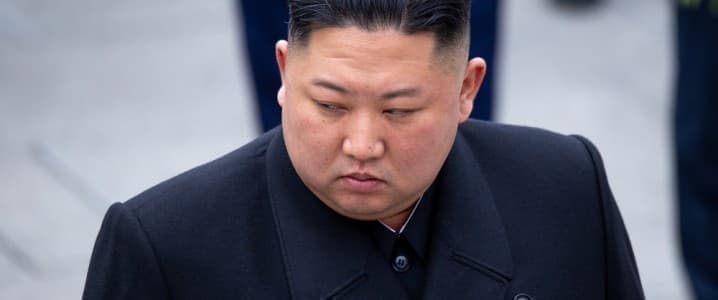After weeks of headlines about Pyongyang’s decision to dispatch thousands of troops to fight alongside Russia in Ukraine, NATO and the Pentagon said this week that North Korean soldiers are in Kursk, the Russian region partly controlled by Ukrainian troops.
Here’s why that’s important for China.
Finding Perspective: The Pentagon said North Korea has sent more than 10,000 troops to Russia to train and fight in the Ukraine war within “the next several weeks,” while NATO Secretary-General Mark Rutte confirmed after a meeting with South Korea’s top intelligence officials that some troops were already in Kursk. The Pentagon also added that a “small number” were already there.
“The deepening military cooperation between Russia and North Korea is a threat to both Indo-Pacific and Euro-Atlantic security,” Rutte told reporters in Brussels on October 28.
Meanwhile, the Pentagon said that the United States will not impose new limits on Ukraine’s use of American weapons if North Korea joins Russia’s war.
That came after White House national-security spokesman John Kirby said last week that if North Korean troops “do deploy to fight against Ukraine, they’re fair game.”
North Korean officials have not commented on the reports, which have also been echoed by Kyiv and Seoul, and the Kremlin initially dismissed reports about North Korean troops, but Russian President Vladimir Putin also did not deny their deployment when asked at last week’s BRICS summit.
The View From Beijing: The reports signal deepening military ties that have been building for the last year between Russia and North Korea — a development that has been met with a muted response from China, with the Foreign Ministry saying last week that it was “not aware of the relevant situation.”
Beijing has long been Pyongyang’s most important ally, providing trade, diplomatic support, and military aid to Kim Jong Un. China and North Korea’s mutual aid and cooperation treaty from 1961 is the only existing defense treaty that China has with any country.
But Beijing has also been frustrated with Pyongyang and the instability it brings, particularly with its nuclear weapons program and threats to annihilate South Korea.
Now Pyongyang is injecting that same style of unpredictability into Ukraine, where the deployment of its troops risks a wider escalation that could start to play out in both Europe and Asia.
Why It Matters: North Korea’s deployment of troops represents a tough balancing act for China.
While China is supporting Russia indirectly in its war effort, North Korea’s involvement is a wild card and something of a strategic headache for Beijing.
North Korea’s closer relationship with Moscow could spell less Chinese influence over Pyongyang, and the involvement of North Korean troops would further strengthen Putin’s partnership with Kim, who signed a pact with the Russian leader in June.
Adding thousands of North Korean soldiers to the Ukraine war could also stoke geopolitical tensions on the Korean Peninsula and the wider Indo-Pacific region, including Japan and Australia.
South Korea said that it’s now considering upgrading its support for Ukraine from nonlethal aid to defensive and perhaps even offensive weapons.
None of that is good news for Beijing. Not only does the development weaken its narrative that China is a force for peace in contrast to the United States, but it also undermines its talking point that Western countries should stay out of Asian defense issues now that the Indo-Pacific is inserting itself into Europe’s security conversation.
Adding to the list of potential concerns for China is the question of what Moscow has agreed to do in return for added troops.
One obvious area could be Russian help in improving North Korea’s nuclear capabilities, something that could accelerate an arms race in the region.
But some analysts believe that Beijing might be tolerating North Korean arms shipments and personnel to Russia to ease pressure on providing direct military assistance itself.
In this reading, China might now be driving on much more unstable terrain but is still firmly in the driver’s seat. Both Moscow and Pyongyang will still prioritize their ties with Beijing over the other, and should China want to truly hit the brake pedal on where North Korea and Russia are going, it would still have leverage to do so.
By RFE/RL

